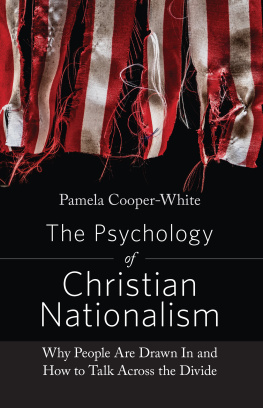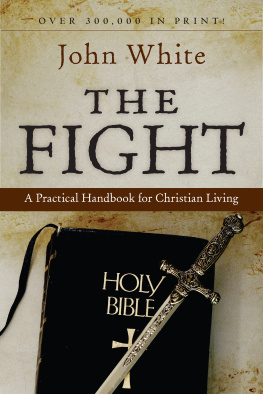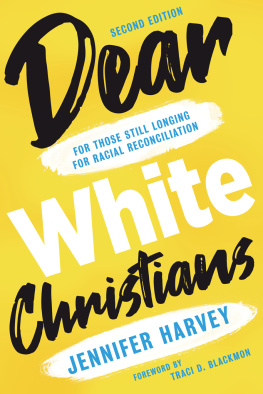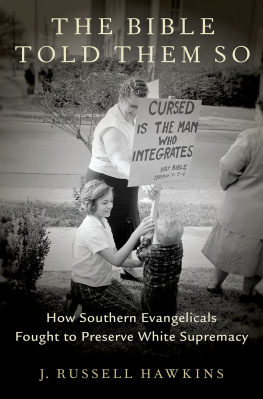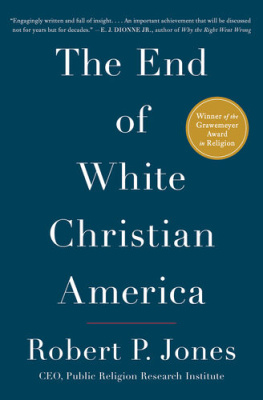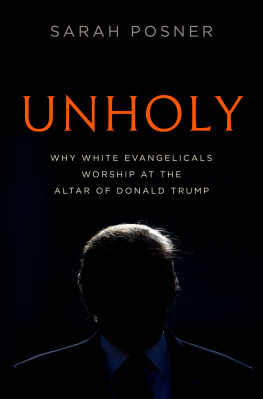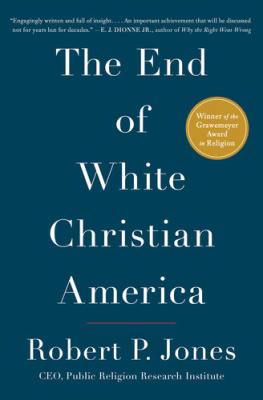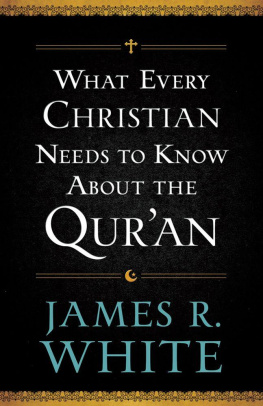Copyright 2022 Dave Verhaagen. All rights reserved. Except for brief quotations in critical publications or reviews, no part of this book may be reproduced in any manner without prior written permission from the publisher. Write: Permissions, Wipf and Stock Publishers, W. th Ave., Suite , Eugene, OR 97401 .
W. th Ave., Suite
Names: Verhaagen, Dave, author.
Title: How white evangelicals think : the psychology of white conservative Christians / Dave Verhaagen.
Description: Eugene, OR: Cascade Books, 2022 | Includes bibliographical references and index.
Identifiers: isbn 978-1-6667-1068-7 (paperback) | isbn 978-1-6667-1069-4 (hardcover) | isbn 978-1-6667-1070-0 (ebook)
Subjects: LCSH: Evangelicalism st century. | EvangelicalismUnited States. | EvangelicalismPsychological aspectsUnited States. | EvangelicalismPolitical aspectsUnited States.
To Ellen, my partner in the journey, the love of my life, the best person Ive ever known.
Wounds from a friend can be trusted.
Acknowledgments
W riting a book is mostly a solitary activity. For me, its late nights after the house is quiet, except for the snoring of an old dog. Ive written eight other books, but none as difficult as this one. Wading through hundreds of books and articles, interviewing people, collecting original research, and late nights of writing made for a tough process. That makes it especially gratifying to have people who have joined me in this writing journey.
Madison Bigler served as my senior research assistant, doing much of the heavy lifting with getting all the research and references together. I couldnt have crossed the finish line without her.
My wife, Ellen, gave me time and space to write, encouragement to keep going, and a listening ear when I needed to talk something out loud. She was also immensely helpful in the early editing phases, helping me cut where I needed to cut and keep what I needed to keep. Beyond the book, she has loved me well for over thirty years. I am blessed to have her in my life.
The folks at Cascade Books, including Michael Thomson, Matthew Wimer, and George Callihan understood the book, including what it was and wasnt about, and stood behind it from the beginning. They allowed me the honor of working with Rodney Clapp, a gifted writer himself, who served as my editor.
Adrian Hon, Tyler Huckabee, Daniel Jones, and Dant Stewart each had important and unique vantage points. Their quotes and insights illuminated me. Thanks to each of you for your excellent perspectives.
One of my favorite parts about writing this challenging book was the kindness of strangers, particularly other professionals who were willing to give me their time. Many of these men and women were people I admire and whose work has helped me on this journey. Several of the top experts in the world, outstanding thinkers, and trailblazers gave me their time to provide me with interviews and original quotes. Im indebted to Dr. Ryan Burge, Dr. Chuck DeGroat, Dr. Agnieszka Golec de Zavala, Dr. Joseph O. Baker, Dr. Jonathan Haidt, Dr. Andrew Whitehead, Dr. Beverly Daniel Tatum, Dr. Robert P. Jones. Dr. Keon West, Dr. Anton Gollwitzer, Dr. Patricia Turner, Dr. Josh Packard, Dr. Robert Brooks, and Dr. Bunmi Olatunji for their generosity and willingness to share their expertise. In some cases, they gave me a few quotes, but several of them gave me in-depth interviews that not only made the book richer, but sharpened my own outlook and understanding of each topic.
Finally, Im immensely grateful for those who have stood by me and will continue to stand by me, even in the face of criticism and hostility. I admire kindness and authenticity, but I especially admire courage. Im grateful for those in my life who embody these qualities.
Introduction
Same Name, Different State
The Beginning of a Journey
I n a time before smart phones and GPS, I unfolded a map on the table and traced the path from Chapel Hill down the North Carolina highways to where I would arrive in Roanoke Rapids, North Carolina a few hours before I was to speak at a conference. I left with plenty of time and drove leisurely to the retreat center. The only problem? The conference was in Roanoke Rapids, Virginia, which was now about two hundred miles away. It wasnt as serious a screw-up as showing up in Arlington, Texas if you were trying to get to Arlington, Virginia or arriving in Gainesville, Florida if you needed to be in Gainesville, Virginia, but it was still a problem. I headed for one place, but I ended up in another place with the same name.
For many of us who grew up in the white evangelical subculture, weve had the same experience. We thought we were going one place, but we ended up somewhere else, somewhere we did not want to be. The name was the same, but it wasnt where we wanted to go.
I signed up to be a Christian when I was seven years old in Vacation Bible School after what must have been one glorious flannelgraph presentation. I was clueless about what being a Christian meant because I was, you know, seven years old. So later during a youth service at the wise old age of fourteen, I raised my hand to proclaim I was going all in. Im loyal, so I kept my commitment to God through the years: Bible study small group in high school, large group coordinator of a campus ministry in college, volunteer staff during graduate school, Sunday school teacher, elder board chair, Christian book author, adjunct seminary professor, and Christian conference speaker. I was a good little Christian boy.
Theres no question I benefited from this immersion in the Christian community. Its where I met many of my friends, business associates, and my wife. Its how I got my first book published, and what opened doors in my business that might have been harder to get through. Over time, though, I realized I had set out for one destination but had arrived somewhere else. I thought being a Christian meant living your life for others, fighting for the powerless and the fatherless and the hopeless, valuing humility and service and mercy, being meek and gentle. With kindness and compassion at its core, authentic Christian faith rejected worldly power grabs and earthly kingdom-building. I had signed up for a faith that loved others when they were unlovable, showed undeserved mercy, and required dying to self and living for others. I thought thats what it was about.
Instead, I found myself as part of a subculture that appeared self-centered, angry, and unattractive, not only to those outside of it, but to plenty of those within it, including me. Instead of being humble, they were arrogant. Instead of being gentle, they were abrasive. Instead of being kind, they were harsh. Instead of valuing the small, they esteemed the big and grandiose. I headed toward one place, but I ended up somewhere hundreds of miles away in a place that shared a name, but little else.


